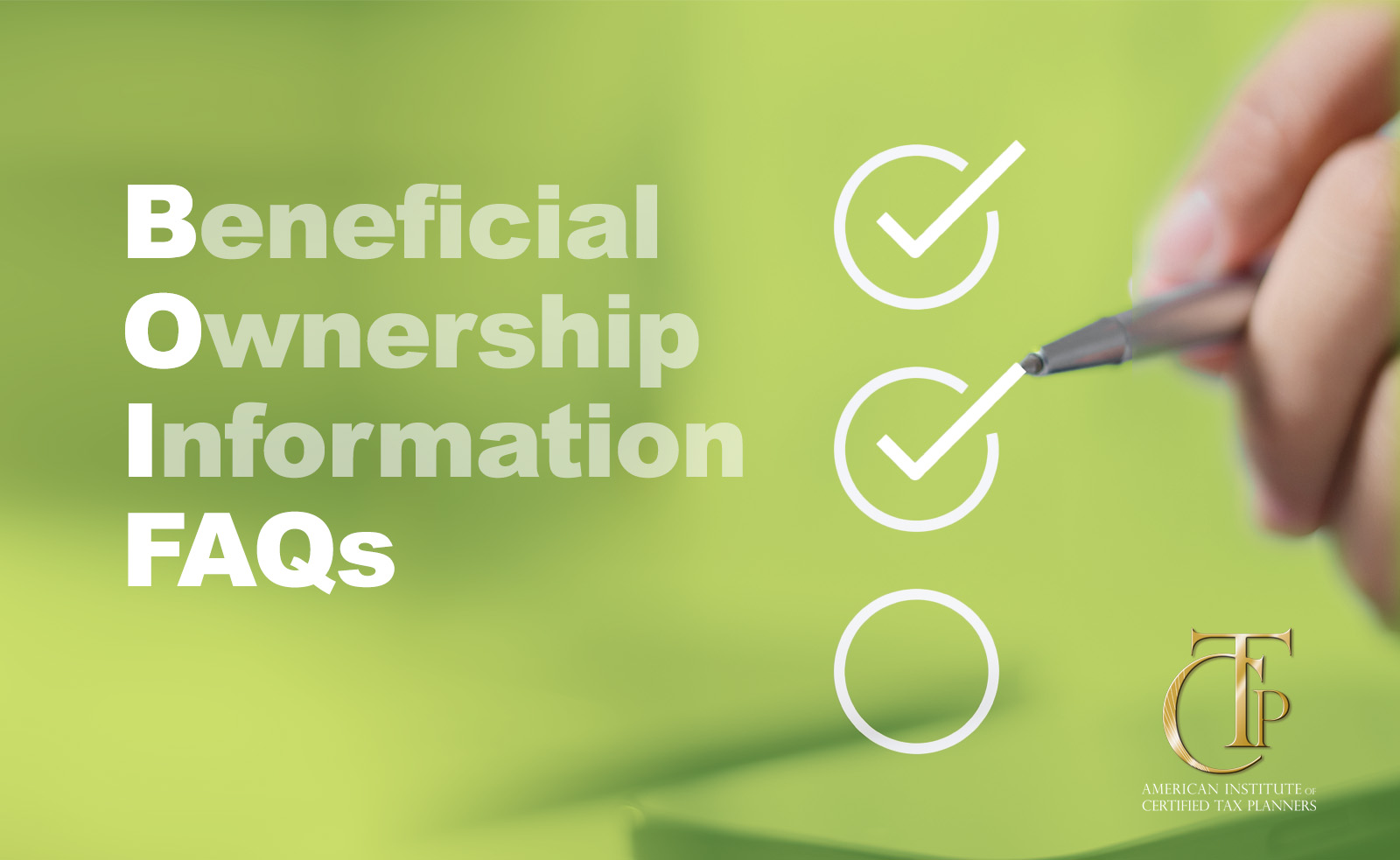The new year means new small business regulations—courtesy of the Corporate Transparency Act. Starting on January 1st, 2024, many small businesses now need to submit a Beneficial Ownership Information Report to the Financial Crimes Enforcement Network (FinCEN). Small businesses can unfortunately sometimes serve as a front for illicit business operations, such as money laundering. The U.S. government is attempting to crack down on bad actors by collecting data on who is actually in control of businesses registered within the U.S.
Our last article covers the basic things-to-know about the new BOI reporting requirements. Below is a rundown of other frequently asked questions to help you prepare to submit a Beneficial Ownership Information Report.
Accountants and Lawyers. Are accountants or lawyers considered beneficial owners of a small business? General accounting and legal services do not fall under the category of substantial control of a company. However, senior officers, such as a general counsel or CFO, would be considered a beneficial owner, based on FinCEN’s definitions. The distinction simply depends on the actual services you are providing for the business.
If you are asking this question in regard to the accounting and other services you provide, consider whether your responsibilities could equate to substantial control. Do you have signing authority over the bank account, access to the bank accounts, or access to the mail? Do you have hiring and firing power? Do you participate in establishing the compensation of any of the employees? If so, you might be considered a beneficial owner of the company, even if you don’t actually have ownership interest.
Company Applicants. The company applicant is the individual who directly files the document that creates or registers the company. If more than one person is involved, the company applicant is the person who is primarily responsible for directing or controlling the filing. These types of companies must report their company applicants:
- A domestic company created in the U.S. on or after January 1, 2024
- A foreign company that was registered in the U.S. on or after January 1, 2024
What if the company applicant no longer has a relationship with the reporting company? Can they be removed from the BOI report? Interestingly, the answer is no. Even if the company applicant is no longer employed by or involved with the company, they must still appear on the company’s BOI report unless there is a change in ownership that would prompt you to file an updated report.
Similarly, your initial BOI report should include any current beneficial owners, and you should not remove anyone unless there is a change in ownership. If there is a change to the beneficial owners, the company should send in an updated report to FinCEN.
Consolidating Companies or Employees. What if you own a group of related companies? Can you consolidate the number of employees across numerous companies to meet the criteria of a large operating company with over 20 U.S. employees? For example, if you have one entity with four employees, one entity with 11 employees, and one with 10 employees, could you treat the group as an exempt entity? The answer here is no. This may be a bit confusing for business owners, since you are allowed to aggregate revenue to meet that $5 million mark. Unfortunately, the rules around consolidating employees are different than for consolidating revenue.
Exempt Entities. If your company does qualify as exempt, how do you indicate this to FinCEN? If the organization has always been exempt, you will not need to file a BOI report. However, if changes take place to the point where you are no longer exempt, you will need to file your BOI report within 30 days of that change in your exemption status. This could happen if your total employee count drops below 20 or your annual revenue drops below $5 million. The same is true if your organization shifts from a reporting company to exempt. You will want to file an updated BOI report indicating your newly-exempt status.
Tax Identification Numbers. A potential stumbling block for new companies is failing to realize that they need to obtain a TIN in time to file their first BOI report. The IRS estimates that this process takes six to eight weeks, so new companies formed in 2024 luck out, since they have 90 days to file. As of now, companies formed in 2025 onward will likely have only 30 days to obtain a TIN and file their report before penalties accrue.
New companies based in the U.S. can register online for a TIN or EIN. If one of your beneficial owners is a foreigner without an individual TIN, you are required to file a paper request.
Summary
FinCEN has provided the key information needed to prepare business owners to submit their first Beneficial Ownership Information Report. Any organizations that may qualify as a reporting company should take care to read through the FAQs list to ensure they are ready for their reporting deadline. For guidance in meeting small business compliance requirements in the new year, get connected with a Certified Tax Planner today.





